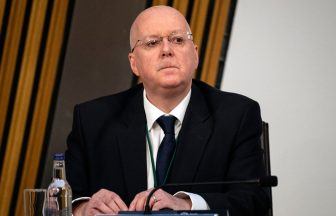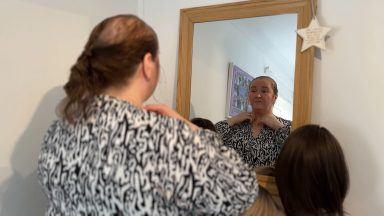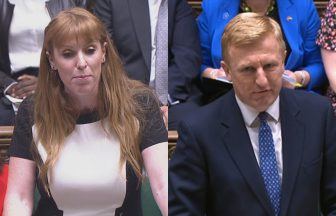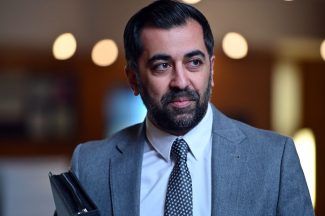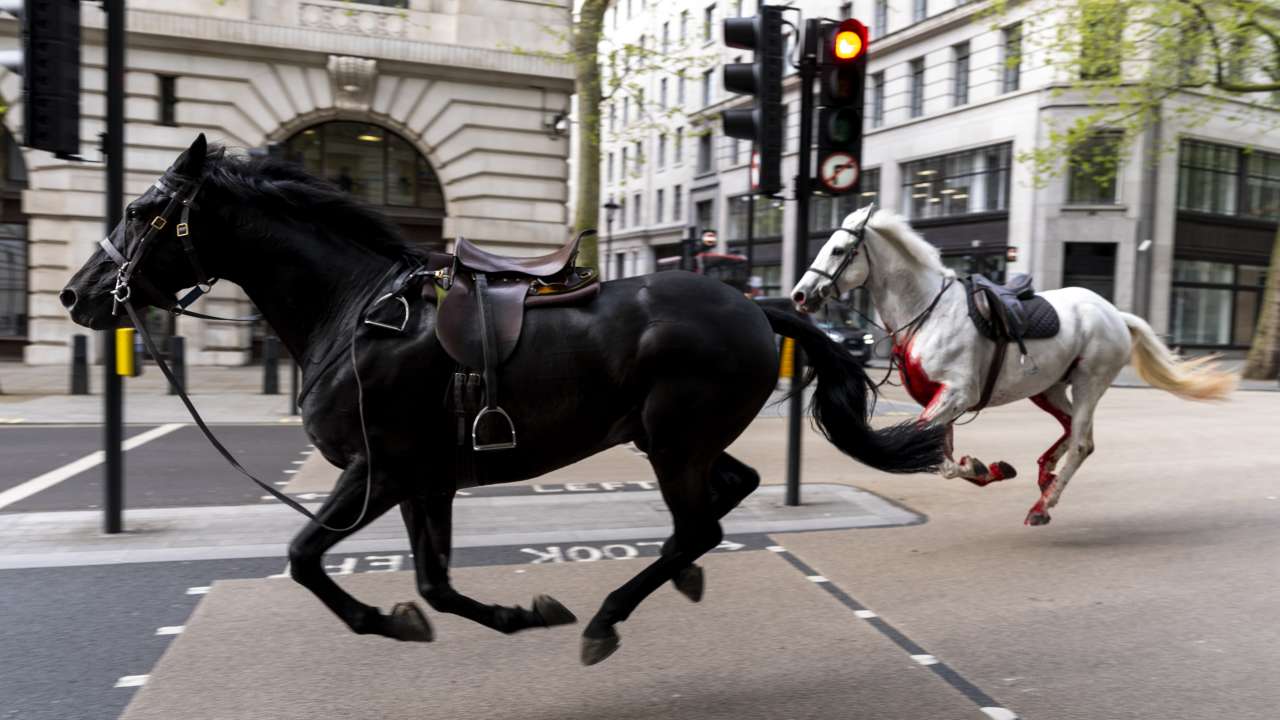When 92-year-old retired engineer Alex Hutcheson introduced himself on the phone, he spoke with a precision and passion of someone many years younger. The great-grandfather told how his twilight years were consumed by perceived injustice that had destroyed his lifelong faith in the police.
We agreed to meet at his home the following day. But it was too late – Alex died suddenly that morning in the arms of his son Campbell, who said: “He spent two-and-a-half years fighting for justice. This meant so much to him. He was up at 7am to have the documents ready.”
Given his determination to have his voice heard, Alex’s parting comment that he did not have “much longer to go” takes on a particularly bitter poignancy.
Known as ‘Gramps’, Alex was widely loved and respected, as evidenced from the turnout at his funeral in Paisley. His death is tragic, but what he had to say is not.
Alex’s son, Campbell, suffered spinal injuries when he was hit by a car in 2017 but two officers decided not to charge the 21-year-old driver. They sent a report to the Crown Office six months later but only because Campbell’s dad Alex complained. By then, however, it was too late to prosecute.
Concerns about Scotland’s police complaints system last year prompted then-justice secretary Michael Matheson to order a review by former Lord Advocate, Dame Elish Angiolini QC.
Since September 2018 she has been asking how Scotland’s national police force is held to account on behalf of the public – or not, as some allege.
Critics say the age-old question “quis custodiet ipsos custodes?” (who will guard the guards themselves?) is as valid as ever and the system remains inherently flawed – police cannot and should not be allowed to investigate themselves.
There is former army officer Bill Johnstone being assigned a fake criminal record after complaining about the CID. Having demanded answers for a decade, he concludes “the police hierarchy think nothing of treating ordinary, honest and hard-working people like me as the enemy”.
Then there’s motivational coach David Yeoman who complained when police failed to properly investigate a reported sex crime. No-one is suggesting police complaints kill people, but with parallels to what happened to Alex, his partner Bev Johnson also died suddenly while consumed by the same sense of injustice.
Bev had just finished writing a report for MSPs about their experience. Her posthumous Holyrood submission stated: “In our experience the current provisions for regulating Police Scotland and the complaints procedure are woefully inadequate.
“Self-regulation is no regulation and the complaints procedure as it currently stands seems designed to wear down the individual until the complaint is abandoned.”
In such cases, some common and cynical themes emerge.
Police can downgrade criminal allegations to non-criminal – ensuring they keep the investigation “in house” and beyond Crown Office scrutiny. They can also soften, manipulate or reject heads of complaint altogether, dramatically altering the substance of allegations.
Other alleged tactics include using time to wear down complainers. How can an ordinary, hard-working person sacrifice vast time and energy – risking their mental and physical wellbeing – to a protracted and confusing process?
Then there is the legal “inequality of arms” in which taxpayers’ money bankrolls blue-chip lawyers to bulldoze those who cannot afford the tens of thousands required for their day in court. One example is a former police officer who spent £45,000 on legal fees and would have had to abandon her case were it not for the backing of a charity.
Many complainers express disquiet about the Crown Office and the Police Investigations and Review Commissioner (Pirc), both of which have central roles.
Some, including former officers, lawyers and politicians, say the Crown can appear too cosy with the police and has no stomach to pursue and prosecute serious corruption, being more comfortable plucking the ‘low hanging fruit’ of minor offences such as data protection breaches.
The same critics also accuse Pirc of being too close to the police due to the number of ex-officers on its payroll. It is also suggested Pirc’s good intentions can be thwarted by the lack of powers to do their job effectively. But the watchdog has begun to show its teeth. Lawyer Kate Frame, then head of Pirc, last year delivered a damning account to MSPs.
In an exoneration of what many have experienced, she accused police of failing to report criminal allegations to the Crown and cited the case of an officer accused of rape being categorised by police as “incivility”.
Ms Frame said the force was sometimes unwilling “to recognise serious failings, when presented with an opportunity, by the complainer, to address matters and suggests an endeavour to keep those matters hidden”. Charges which the police deny.
Dame Elish is busy speaking to interested parties, including Bill Johnstone, and the police are most likely lobbying hard to maintain the status quo. But everyone involved can surely agree about the corrosive effect of unfairness.
Whatever Dame Elish recommends, it is too late for Alex and Bev, but for anyone else who cares about the integrity of a policing system built on public trust and consent, change seems likely.




